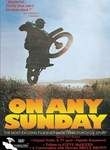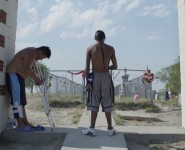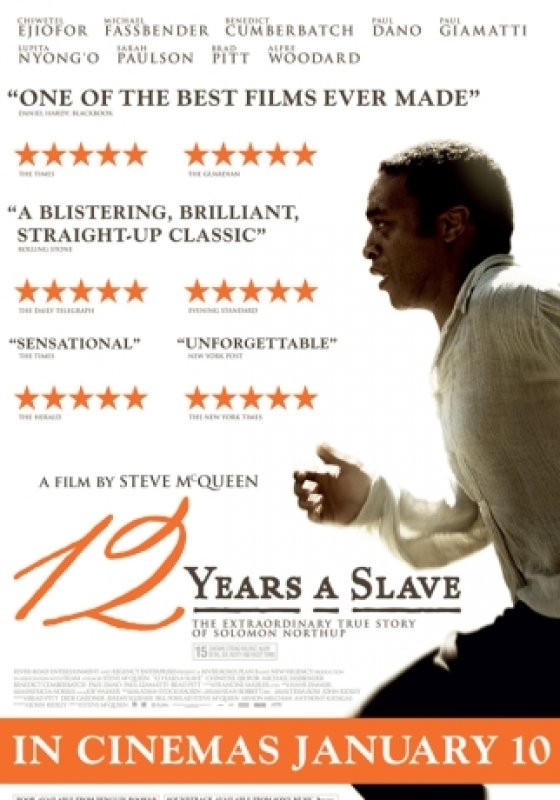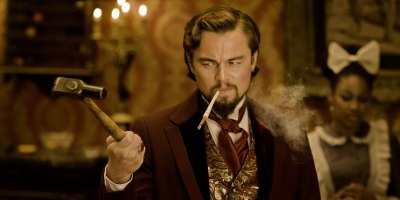On Any Sunday

After watching On Any Sunday, it’s safe to say that I know slightly more about motorcycles. Did I want to know anymore about motorcycles? Not really. Thankfully however, the bulk of this movie is not about motorcycles, but the men who ride them. And thanks to the directorial work of Bruce Brown, they are men that are very easy to care about.
While it’s easy to tell that Bruce Brown made this movie purely for the love of motorcycle racing (he uses terms like “pure” and “love” around the subject liberally) his shrewdness and skill as a filmmaker is evident throughout. Brown convincingly portrays the world of motorcycles as an overlooked slice of Americana, as quintessential and as relevant as country music or Coca-Cola. While this kind of approach can often comes across as hackneyed, here it works remarkably well. Brown has a keen eye for creating images that stick with you, and he gives us several money shots in the opening minutes of the movie: a group of children on bicycles, eagerly adding their own “VROOOOOM! Vr-vr-VROOM!” motorcycle noises, toddlers protecting their eardrums with plastic cups as they gaze in rapt attention at the race. The racers themselves are modern day cowboys. They are handsome and all-American, but perhaps most pertinently, they are wanderers. The convention of ‘the open road’ and the freedom to roam it goes further back then Walt Whitman in American lore, and as Brown illustrates, still lies at its heart.
The film doesn’t focus on any specific motorsport event, preferring to capture as many individual events and riders as possible. Brown takes us to the Six Day Trials in Spain, where we meet biking legend Malcolm Smith. We see ice racing in Russia, desert racing in Mexico. We even get profiles on the different “breeds” of racers. “Desert racers are good people” says Brown sagely, as we watch one dismount his bike and save a tortoise from certain doom on the track. We see unspeakable acts of endurance, such as Gary, who after a fall “Said he was alright. One hour later, he was taken to the hospital with a broken back. He soaked the cast off in the bathtub, put on a brace instead, and within six weeks would race again.”
Unfortunately, Brown’s love of the sport means he is unable to resist the temptation of sticking in technical jargon and mechanical fun facts wherever he feels like he can get away with it. To the motorcycle fanatic, this will be a revelation. To everyone else, it’ll distract you from the otherwise fluid feel of the film. With such a niche sport, it’s difficult for Brown to retain the viewer’s attention for very long: who wants to see the underside of a tire? Perhaps in remedy to this, Brown cuts away to Fun Things whenever he senses our interest wavering. Wanna see some people comically falling off their bikes? You’ve got it. How about some shots of Steve McQueen being an absolute boss? Here you go.
To the director’s credit, McQueen’s involvement with the movie never feels tacky or like an obvious cash-cow. The DVD features an elegant tribute to his love of motorcycles, and his overall being a Darn Nice Guy. The montage may bring a tear to anyone that has fond memories of McQueen. It also might give you the urge to call your dad. It’s one of those things. The film does more than examine motorsport of the sixties and seventies; it almost gives you a microcosmic feel of the era as a whole. Between bloody noses and broken bones, we are reminded that many of the races ended in “a trophy, and the pride of knowing you did it.”
While the cinematography and musical score will appear far too dated for most, On Any Sunday deserves its spot in the documentary film hall of fame. It’s emotional, it’s involving, and made before documentaries had the same intellectual vogue they do now.








Recent Comments